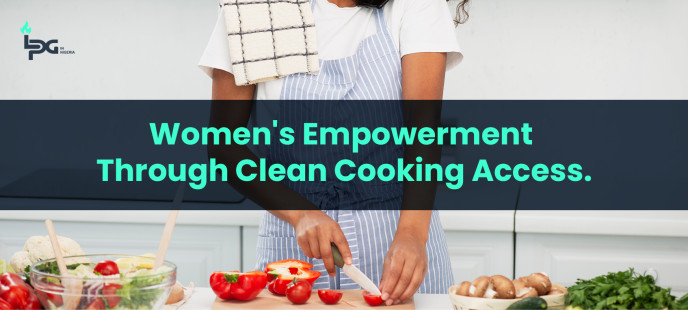- 4006
- 0
Sharing Ideas and Updates on LPG in Nigeria and related information to enable effective collaboration within the LPG Value Chain
Women's Empowerment Through Clean Cooking Access.

As we celebrate International Women’s Day, we're reminded of the remarkable strides women have made globally, yet we must also shed light on the persisting challenges they face. At LPG in Nigeria, we extend this celebration throughout March, recognizing the invaluable contributions of women. Among the pressing issues is the often-overlooked challenge of limited access to affordable, clean energy for cooking. In this post, we look into how addressing this issue serves as a catalyst for transformative change, improving health, mitigating climate change, and empowering women economically and socially.
The Impact of Clean Cooking Access: Despite notable progress, a staggering 1.5 billion people worldwide still lack access to clean and modern cooking fuels. This forces many women into reliance on smoky, toxic fires fueled by wood, charcoal, and kerosene. The resulting health hazards claim over four million lives annually, with women and children in Africa disproportionately affected. Moreover, the time-consuming task of fuel collection perpetuates gender inequalities, hindering women's education, economic prospects, and community engagement.
The Call for Urgent Action: Recognizing the urgency, the International Energy Agency (IEA) and the African Development Bank are collaborating to address the lack of clean cooking deployment. An upcoming high-level Summit on Clean Cooking in Africa, slated for May 14, seeks to accelerate commitments on finance, policy, and collaboration. By increasing investment in clean cooking and solidifying its global priority status, the summit aims to catalyze change and ensure the full participation of women and girls in climate action and sustainable development.
Women as Agents of Change: Women are not only the primary beneficiaries but also the driving force behind clean cooking transitions. When equipped with tools and resources, women emerge as advocates, educators, and leaders within their communities. The clean cooking sector offers new pathways for economic empowerment, enabling women to challenge traditional gender norms and reinvest in their families and communities, thereby driving sustainable development.
There are several ways Nigerian women can be empowered, particularly in the context of clean cooking access:
Education and Training: Providing women in Nigeria with access to education and training programs focused on clean cooking technologies can empower them with the knowledge and skills needed to adopt and promote cleaner cooking practices within their communities. Workshops, seminars, and vocational training can equip women with the technical know-how to utilize modern cooking fuels and appliances effectively.
Entrepreneurship Opportunities: Encouraging entrepreneurship among Nigerian women in the clean cooking sector can foster economic empowerment. Initiatives such as microfinance loans, business grants, and entrepreneurship training can enable women to establish their own clean cooking businesses, including stove manufacturing, fuel distribution, and cooking services.
Leadership and Advocacy: Empowering Nigerian women to become leaders and advocates for clean cooking access can drive positive change at the community and policy levels. Women's leadership programs, mentorship initiatives, and networking opportunities can help amplify their voices and influence decision-making processes related to clean cooking policies, investments, and initiatives.
Community Engagement and Awareness: Engaging Nigerian women as community champions for clean cooking can raise awareness and promote behavior change within households. Community-based education campaigns, peer-to-peer learning networks, and women-led community groups can empower women to educate their peers about the health, environmental, and economic benefits of clean cooking practices.
Access to Clean Cooking Technologies: Ensuring equitable access to affordable and appropriate clean cooking technologies for Nigerian women is essential for empowerment. Government subsidies, incentives for clean cooking technology adoption, and partnerships with private sector stakeholders can help make clean cooking solutions more accessible and affordable for women, particularly those in low-income communities.
By prioritizing these strategies, Nigeria can empower its women to play a pivotal role in advancing clean cooking access, improving health outcomes, mitigating environmental degradation, and fostering sustainable development.
















0 Comment.